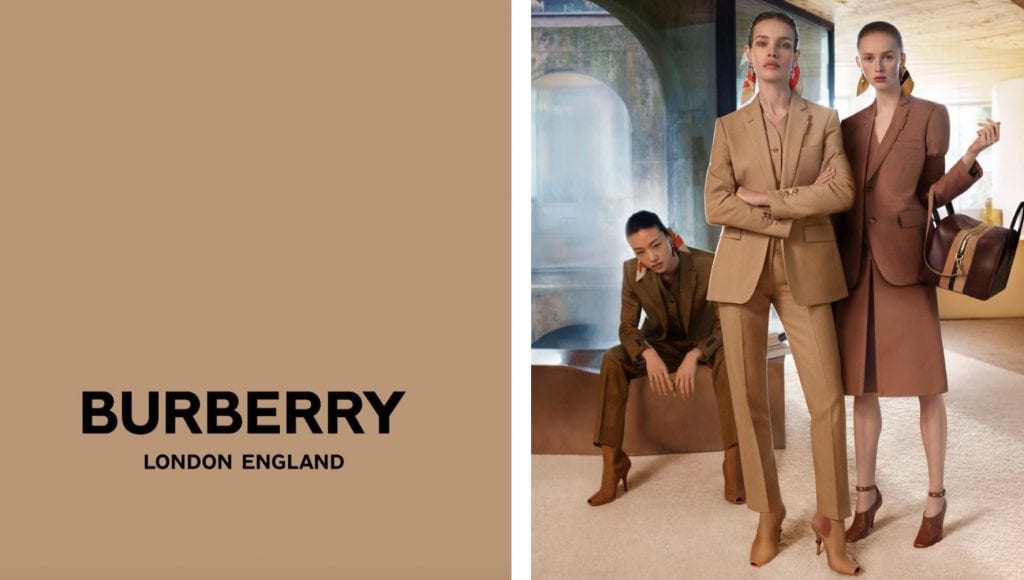Burberry, Gucci, and Prada are all adopting something new: efforts dedicated to assisting them steer clear of public-facing race-based or social-centric missteps. On Tuesday, Burberry revealed by way of a statement from CEO Marco Gobbetti that it is aiming “to increase [its] consciousness and understanding of social issues, and [to] fully embrace diversity and inclusion.”
Speaking on behalf of the British brand and prompted by “the distress caused by” a recently-revealed sweatshirt bearing a tie that resembles a noose, Gobbetti says that Burberry “will strengthen our understanding of and sensitivity to a range of perspectives to help us live the values we hold and be truly inclusive.”
This will see the brand “introduce additional training for all employees, including senior management, establish employee councils focused on diversity and inclusion, and assemble an advisory board of external experts.” The stalwart London-based label will also “strengthen goals to ensure diverse representation in our employee base.”
The announcement comes just over a week after Prada declared that it is launching a “Diversity and Inclusion Advisory Council,” an effort that is being co-chaired by writer, director, and producer Ava DuVernay and artist and activist Theaster Gates, and aimed at “elevating voices of color within the company and the fashion industry at large.” As Prada creative chief Miuccia Prada stated last week, “In addition to amplifying voices of color within the industry we will help ensure that the fashion world is reflective of the world in which we live.”
Prada’s council follows directly from a race-based scandal tied to the brand’s release and subsequent removal of products in December 2018 that drew blackface criticism.
Still yet, Gucci announced a similar initiative just days prior, after it was chastised by the media – and social media users, alike – for showing a nearly $900 blackface-esque sweater on its runway. “I am aware that sometimes our actions can end up with causing unintentional effects,” Gucci creative director Alessandro Michele stated in an open letter on the heels of the collections’ debut.
As part of its new venture, Gucci says it will engage in a round of new hires, including 5 new designers who will work in its Rome design studio, and a global director for diversity and inclusion, who will fall under the Gucci America umbrella in New York. The brand aims to hire a number of global and regional directors for diversity and inclusion, as well as initiate a multicultural design scholarship program, a diversity and inclusivity awareness program, and a global exchange program.
Are Brands Acting Out on Purpose?
These brands are largely being praised for their recently-announced efforts in light of a flurry of controversial offerings, questions are being raised by consumers. For one thing, in connection with the recent string of offensive products, whether it be Dolce & Gabbana’s racist ad campaign and subsequent comments or Gucci’s blackface-inspired sweater, no shortage of social media users have taken to wondering whether brands are acting out on purpose.
Echoing the sentiments of many consumers, Salon asserted in an article published last week, we are living in “an era when brands should know better than to ‘inadvertently’ sell clothes using racist imagery or insensitivity to mental health.” The publication went on to cite Liz Kennedy, the Burberry model who first spoke out about the noose design, who stated on Instagram, “There is a bigger picture here of what fashion turns a blind eye to or does to gain publicity.”
Fashion industry insiders and commentators have taken the stance that fashion brands are, in fact, in the business of publicity, but this is not the kind of attention they want, meaning that these instances are almost certainly not intentional cries for relevance.
Digital media veteran Dina Fierro stated on Twitter that brands “are more likely to be ignorant to the cultural sensitivities around some of these references” than acting out purposely to ruffle feathers. Elizabeth Paton, who covers luxury brands and fashion for the New York Times, noted that “luxury brands are neurotic to a fault about controlling their public image, which is what makes these repeated design missteps all the more bizarre.”
Yet, while fashion figures seem confident that brands are not using race-based issues to gain consumer attention, many consumers — the ones actually tasked with shelling out on designer wares — have displayed skepticism and are far less impressed by these new efforts. As one of Burberry’s Instagram followers stated, “I don’t understand why it’s so difficult to just not do racist sh*t.” Another chimed in saying, questioning the authenticity of the brand’s announcement, “Apologize so u can keep getting money.”
Meanwhile, a Gucci follower questioned, “It’s 2019 and you’re just bringing these initiatives?”













